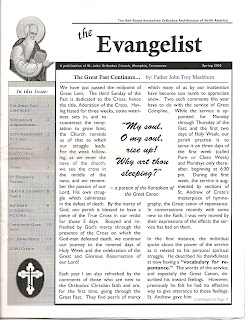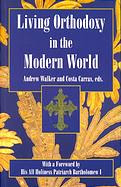>“My barn having burned down, I can now see the moon.” 
As I wade through painful memories while writing my memoir, I struggle to embrace this maxim. My response to pain inflicted by others, or even to difficult situations allowed by God, is much more often anger, and rarely thankfulness. In his book, How to Be An Adult: A Handbook on Psychological and Spiritual Integration, David Richo talks about the necessity of both psychological and spiritual healing. The following is a fairly long quote, but worth the read:
An example of the congruence of psychological and spiritual work is in dealing with the hurts of childhood. Psychologically, we work through the emotions by grieving the past and by self-parenting. Spiritually, we work with the past experiences as present healing images. These images may reveal that what wounded us also sensitized us. We needed all the experiences of our life—positive and negative—to become as emotionally and spiritually rich as we are!
As we learn to honor timing, we may notice that we alternate between psychological and spiritual emphases in life. At one time, our main motive may be to seek out and respond to challenge, to take hold and become deeply involved in projects and relationships. This is functional ego work and takes rightful precedence over letting go. At another time, what will work best for us are choices that lead to fewer encumbrances, to lightening up, and letting go. This is spiritual unfolding and takes precedence over ego goals.
Psychological work ultimately leads us to closure and to the goal of change: healthier self-esteem and more productive relationships. Spiritual work leads us to continual transformations of consciousness: an ever-actualizing Self, in touch with inner healing powers both for us and for others.
For many years I rejected psychological healing, considering it to be un-Christian. Thankfully, I was shown its value and encouraged to incorporate it into my life. One of the people who encouraged me in this direction is my “spiritual mother,” an Orthodox Abbess at a monastery. Another is someone I haven’t met, but his books were crucial in preparing the way for me to enter this realm. Metropolitan Hierotheos Vlakos, whose books have been translated from Greek in recent years, speaks of the Church as a “spiritual hospital,” but also avows that when it fails in this role, modern psychology often steps in to fill the gap. I don’t believe the Church fails sacramentally… God has given us everything we need for life and salvation in the sacraments. But in our sickness, sometimes we need counseling to bring us to a place where we are able to more fully receive those sacraments, and not all priests are equipped for this counseling.
 Yesterday I received our parish newsletter, the Evangelist, in the mail. The front page story, “The Great Fast Continues,” by our pastor, Father John Troy Mashburn, talks about this past Sunday, the Adoration of the Cross, which is mid-way in our Lenten journey. A brief excerpt:
Yesterday I received our parish newsletter, the Evangelist, in the mail. The front page story, “The Great Fast Continues,” by our pastor, Father John Troy Mashburn, talks about this past Sunday, the Adoration of the Cross, which is mid-way in our Lenten journey. A brief excerpt:
 through the presence of the Cross on which the God-man defeated death, we continue our journey to the revered days of Holy Week and the celebration of the Great and Glorious Resurrection of our Lord! (That’s the Reliquary of the True Cross at the Church of the Holy Sepulchre in Jerusalem, at right. Click on the image to see it larger.)
through the presence of the Cross on which the God-man defeated death, we continue our journey to the revered days of Holy Week and the celebration of the Great and Glorious Resurrection of our Lord! (That’s the Reliquary of the True Cross at the Church of the Holy Sepulchre in Jerusalem, at right. Click on the image to see it larger.)Somewhere between the service of Compline on Monday night and Presanctified Liturgy last night it began to sink in. When I let go of the intense mental and psychological work that Richo wrote about in Growing Up, and move into the realm of spiritual healing, I make room for God. The psychological work is helpful, even necessary for me. I still have painful stuff to work through from my past. And as Richo says, becoming deeply involved in projects (like icon workshops and memoirs) is an important part of that journey for me.
This push and pull, this rhythm of psychological and spiritual work, is a dance I’ll be learning the  rest of my life. I received a beautiful card in the mail yesterday from a dear friend. On the front was this colorful image, reminding me of a spinning wheel creating beautiful fabric designs. The quote was from Rumi, and in case you can’t read it in this scanned image, here’s what it says:
rest of my life. I received a beautiful card in the mail yesterday from a dear friend. On the front was this colorful image, reminding me of a spinning wheel creating beautiful fabric designs. The quote was from Rumi, and in case you can’t read it in this scanned image, here’s what it says:
Let yourself be silently drawn by the stronger pull of what you really love.
As I read it, I thought of the Scripture verse that says, “For where your treasure is, there your heart will be also.” (Matthew 6:21)
So how do I continue this dance… this struggle to heal the past and be fully present to receive God’s love and pass it on to others? I had a discussion with one of my children a few years back about whether or not people can truly change. I have to believe they can.
 Dr. Jamie Moran, in his essay, “Orthodoxy and Modern Depth Psychology,” (in Living Orthodoxy in the Modern World) says:
Dr. Jamie Moran, in his essay, “Orthodoxy and Modern Depth Psychology,” (in Living Orthodoxy in the Modern World) says:
People only change if they are truly religious in the way that the child is originally religious: in love with the world, and full of the élan that can only come from reaching out of oneself, in interest and concern. Those people who retain a spark of this religiousness, and who therefore still serve something greater than themselves, will because of that ‘something,’ open their selfishness to life and healing. Only such people will repent of selfishness, and let life show them it is wrong as a basis for existence.
People who leave a space for God—even for the “hidden” God, which is what the Holy Spirit is: God’s humility—can be helped, and can change. They can learn to live with the most extreme damage and suffering, and yet still find joy in life….
People who leave a space for God are able to make that change of heart, not for any sentimental reason or out of any moral superiority, and certainly not because of what is conventionally called piety, but because and only because, despite their selfishness, they truly acknowledge and have faith in a force that is greater than themselves. They are willing to open their selfishness up to that greater force, and in opening its closed system, to begin to let life teach it its mistakes and heal its wound, and comfort its genuine suffering.
That’s what the True Cross did for me this week by its presence in the nave at St. John. It comforted my genuine suffering and softened my selfish heart, enabling me to let go of my delusion of control, and of clinging to selfishness, as Moran says, as a basis for existence. Oh, I’ll want to take them back up again, over and over, that anger and control and selfishness. But at least for this week, I’m choosing to take up the Cross, and I’m finding, by God’s grace, that “My yoke is easy, and my burden is light.” (Matthew 11:30)